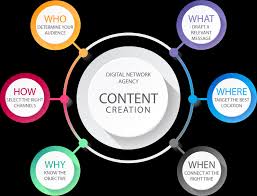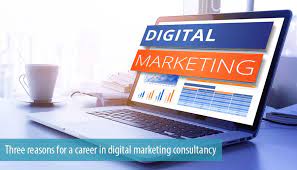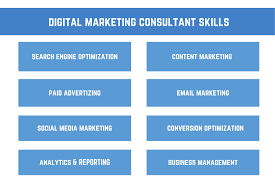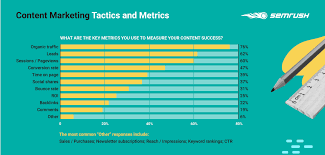Title: The Power of a Content Marketing Consultant: Boosting Your Brand’s Success
Introduction:
In today’s digital age, where information is readily available and competition is fierce, businesses must find innovative ways to stand out and engage with their target audience. This is where a content marketing consultant becomes an invaluable asset. With their expertise and strategic approach, they can help businesses navigate the complex world of content marketing and drive meaningful results. In this article, we will explore the role of a content marketing consultant and the benefits they bring to your brand.
Understanding Your Business:
A skilled content marketing consultant begins by gaining a comprehensive understanding of your business, its goals, target audience, and unique selling points. They delve into your industry landscape to identify key trends and competitors. Armed with this knowledge, they develop a tailored content strategy that aligns with your brand’s objectives.
Crafting Compelling Content:
One of the core responsibilities of a content marketing consultant is creating high-quality, engaging content that resonates with your audience. They possess exceptional writing skills and understand how to craft compelling narratives that captivate readers’ attention. Whether it’s blog posts, social media content, or website copy, they ensure that every piece of content reflects your brand’s voice while delivering value to your audience.
Strategic Distribution:
Creating great content is just one part of the equation; effectively distributing it is equally crucial. A content marketing consultant knows how to leverage various channels and platforms to maximise reach and engagement. They employ strategies such as search engine optimization (SEO) techniques to improve visibility on search engines or develop targeted social media campaigns to amplify your brand’s presence.
Measuring Success:
A reliable content marketing consultant understands the significance of data-driven decision-making. They use analytics tools to track key performance indicators (KPIs) such as website traffic, engagement rates, conversions, and more. By analysing these metrics regularly, they can refine their strategies for optimal results. This data-driven approach ensures that your content marketing efforts are continuously improving and delivering a high return on investment.
Staying Ahead of Trends:
The digital landscape is ever-evolving, with new trends and technologies emerging constantly. A content marketing consultant stays up-to-date with the latest industry developments, ensuring that your brand remains at the forefront of innovation. They identify new platforms, tools, and tactics that can enhance your content strategy and keep you ahead of the competition.
Collaboration and Expertise:
Working with a content marketing consultant is a collaborative effort. They become an extension of your team, working closely with your marketing department to align strategies and goals. Their expertise provides fresh perspectives and insights that can unlock untapped potential for your brand’s success.
Conclusion:
In today’s competitive business environment, effective content marketing is no longer optional; it is essential for building brand awareness, driving customer engagement, and ultimately boosting revenue. A skilled content marketing consultant brings valuable expertise, strategic thinking, and creativity to the table. By partnering with one, you can harness the power of compelling content to connect with your audience on a deeper level and achieve long-term success for your brand.
The 9 pros of content marketing consultant:
- Expertise in content marketing strategy and implementation.
- Ability to create engaging, targeted content that resonates with the target audience.
- Knowledge of different content formats and platforms, such as blogs, videos, podcasts and social media channels.
- Understanding of SEO best practices to ensure maximum visibility for the content created.
- Ability to track performance metrics and make data-driven decisions for future campaigns.
- Experience in creating original content that stands out from competitors’ offerings and drives conversions or leads from potential customers or clients.
- Ability to develop a comprehensive content marketing plan tailored to the client’s specific needs and objectives
- Able to provide insights into emerging trends in digital marketing so clients can stay ahead of their competition
- Provide guidance on how best to use analytics tools for tracking the success of campaigns
Drawbacks of Hiring a Content Marketing Consultant: Exploring the UK Perspective
- Expensive – Content marketing consultants can be expensive depending on the level of expertise they bring to the table.
- Limited Resources – Content marketing consultants may not have access to the same resources as an in-house team, such as specialized software or tools.
- Lack of Understanding – A content marketing consultant may not understand your business or industry as well as someone who works within it every day.
- Limited Knowledge – Depending on their experience and background, a content marketing consultant may only have limited knowledge about certain aspects of content marketing, which could limit their effectiveness in helping you reach your goals.
- Conflict of Interests – If a content marketing consultant is also working with one of your competitors, there could be potential conflicts of interest that need to be addressed before hiring them for services.
Expertise in content marketing strategy and implementation.
In the ever-evolving world of digital marketing, having a well-defined content marketing strategy is crucial for businesses looking to make their mark. This is where the expertise of a content marketing consultant shines through. With their in-depth knowledge and experience, they can help businesses develop and implement effective content marketing strategies that drive results.
A content marketing consultant understands that strategy is the foundation of any successful campaign. They take the time to understand your business objectives, target audience, and industry landscape. Armed with this information, they develop a comprehensive content marketing plan tailored to your specific needs.
Their expertise lies in creating a roadmap that outlines the types of content to create, the platforms to leverage, and the key messages to convey. They know how to align your brand’s voice with your target audience’s preferences, ensuring that every piece of content resonates with them.
Implementation is another area where a content marketing consultant excels. They have a deep understanding of various content formats such as blog posts, videos, infographics, and social media posts. They know which channels are most effective for reaching your target audience and can tailor your content accordingly.
Additionally, a skilled consultant keeps up with industry trends and best practices. They are well-versed in search engine optimization (SEO) techniques that can improve your website’s visibility on search engines. They understand how to optimize keywords, meta tags, and headlines to drive organic traffic.
Furthermore, they have expertise in leveraging social media platforms for maximum reach and engagement. They know how to craft compelling captions and use hashtags effectively to increase visibility. By staying up-to-date with emerging trends and platform changes, they ensure that your brand remains relevant in an ever-changing digital landscape.
A content marketing consultant also brings valuable insights into measuring success. They use analytics tools to track key performance indicators (KPIs) like website traffic, engagement rates, conversions, and more. This data-driven approach allows them to identify what works best for your brand and make informed decisions to optimize your content strategy.
In conclusion, the expertise of a content marketing consultant is invaluable for businesses seeking to establish a strong online presence. Their ability to develop and implement effective content marketing strategies can drive brand awareness, engagement, and ultimately, business growth. By partnering with a skilled consultant, you gain access to their knowledge and experience, giving your brand a competitive edge in the digital landscape.
Ability to create engaging, targeted content that resonates with the target audience.
In the realm of content marketing, one standout advantage of working with a content marketing consultant is their ability to create engaging, targeted content that truly resonates with the target audience. This skill is invaluable in capturing attention, building brand loyalty, and driving meaningful interactions.
A content marketing consultant possesses a deep understanding of your brand’s target audience. They conduct thorough research and analysis to identify their preferences, needs, pain points, and aspirations. Armed with this knowledge, they craft content that speaks directly to the hearts and minds of your ideal customers.
Through their expertise in storytelling and persuasive writing, a content marketing consultant can create compelling narratives that captivate your audience from the very first word. They know how to evoke emotions, spark curiosity, and address the specific challenges or desires of your target market. By doing so, they establish a strong connection between your brand and its audience.
Moreover, a content marketing consultant ensures that the created content aligns with your brand’s voice and values. They understand the importance of maintaining consistency across all communication channels. Whether it’s blog posts, social media updates, or email newsletters, every piece of content reflects your brand identity while delivering value to your readers.
By tailoring content specifically for your target audience, a skilled consultant helps you cut through the noise in today’s crowded digital landscape. Instead of generic messages that get lost in the sea of information bombarding consumers daily, you can deliver tailored content that speaks directly to their needs and interests.
The ability to create engaging and targeted content also contributes to building brand loyalty. When consumers feel understood and find value in what you offer through your content efforts, they are more likely to develop trust in your brand. This trust fosters long-lasting relationships with customers who become advocates for your business.
Furthermore, by creating highly relevant and engaging content, a consultant can attract qualified leads who are more likely to convert into paying customers. The tailored approach ensures that you are reaching the right people with your message, increasing the chances of driving conversions and achieving your business goals.
In summary, the ability to create engaging, targeted content that resonates with the target audience is a significant advantage of working with a content marketing consultant. Their expertise in understanding your audience’s preferences and crafting compelling narratives helps you establish strong connections, build brand loyalty, attract qualified leads, and ultimately drive success for your business in today’s competitive digital landscape.
Knowledge of different content formats and platforms, such as blogs, videos, podcasts and social media channels.
In the rapidly evolving world of digital marketing, businesses need to adapt and utilise various content formats and platforms to effectively engage with their target audience. This is where the expertise of a content marketing consultant shines through. A skilled consultant possesses in-depth knowledge of different content formats and platforms, such as blogs, videos, podcasts, and social media channels.
Blogs have long been a staple in content marketing. A content marketing consultant understands the power of well-crafted blog posts that provide valuable information, insights, and solutions to readers’ problems. They know how to optimise blog content for search engines, ensuring maximum visibility and organic traffic.
Videos have become increasingly popular in recent years due to their ability to convey information quickly and engagingly. A content marketing consultant recognises the impact that videos can have on audience engagement. They can develop video strategies that align with your brand’s message and goals, whether it’s educational tutorials, product demonstrations, or compelling storytelling.
Podcasts have emerged as a powerful medium for connecting with audiences on a deeper level. A content marketing consultant understands the growing popularity of podcasts and can guide you through the process of launching your own podcast series. They can help you identify relevant topics, structure episodes effectively, and promote your podcast across various platforms.
Social media channels play a crucial role in reaching and engaging with a wide audience. A content marketing consultant possesses an in-depth understanding of different social media platforms like Facebook, Instagram, Twitter, LinkedIn, and more. They know how to tailor content specifically for each platform while maintaining brand consistency. Whether it’s crafting attention-grabbing captions or creating visually appealing graphics or videos, they utilise social media channels strategically to amplify your brand’s reach.
By leveraging their knowledge of different content formats and platforms, a content marketing consultant ensures that your brand’s message is effectively communicated across various channels. They understand which formats work best for specific goals or target audiences and can create cohesive strategies that leverage the strengths of each medium.
In conclusion, a content marketing consultant’s expertise in different content formats and platforms is invaluable in today’s digital landscape. Their knowledge allows them to develop comprehensive strategies that utilise blogs, videos, podcasts, and social media channels effectively. By harnessing the power of these diverse formats, businesses can engage with their audience on multiple levels and establish a strong online presence that drives results.
Understanding of SEO best practices to ensure maximum visibility for the content created.
In the digital realm, where millions of websites compete for attention, having an understanding of SEO best practices is crucial for any content marketing strategy. This is where a content marketing consultant truly shines. With their expertise in search engine optimization, they ensure that the content created not only engages readers but also achieves maximum visibility in search engine results.
Search engine optimization involves optimizing various elements of a website or piece of content to improve its ranking on search engine results pages. A skilled content marketing consultant understands the intricacies of SEO and how to leverage it effectively. They stay updated on the latest algorithms and trends set by search engines like Google, ensuring that your content aligns with these ever-changing requirements.
By incorporating SEO best practices into their strategies, content marketing consultants help your brand’s content rank higher in relevant searches. This means more potential customers discovering your website and engaging with your brand. They conduct thorough keyword research to identify the most relevant and impactful terms for your industry, integrating them strategically throughout your content to increase its visibility.
Furthermore, a content marketing consultant optimizes other important elements such as meta tags, titles, headings, and image alt text to enhance search engine readability and improve user experience. They also ensure that your website’s technical aspects are optimized for speed and mobile-friendliness – two factors considered essential by search engines when determining rankings.
With an understanding of SEO best practices, a content marketing consultant helps you stay ahead of the competition by guiding you on creating high-quality, keyword-rich content that resonates with both readers and search engines. By achieving maximum visibility in search results, you increase the chances of attracting organic traffic and potential customers to your website.
In conclusion, partnering with a content marketing consultant who possesses a deep understanding of SEO best practices can significantly impact your brand’s online presence. Their expertise ensures that the content created not only appeals to your target audience but also ranks well in search engine results. By utilizing effective SEO strategies, they help your brand achieve maximum visibility, drive organic traffic, and ultimately increase your chances of success in the digital landscape.
In today’s digital landscape, where data is abundant and insights are key, the ability to track performance metrics and make data-driven decisions is a crucial advantage offered by content marketing consultants. These professionals understand the importance of measuring the success of your content marketing efforts and using that data to inform future campaigns.
By employing various analytics tools, content marketing consultants can track key performance indicators (KPIs) such as website traffic, engagement rates, conversions, and more. This valuable data provides a clear picture of how your content is resonating with your target audience and whether it is driving the desired outcomes.
With access to this information, content marketing consultants can evaluate the effectiveness of different strategies and tactics employed in previous campaigns. They can identify what worked well and what didn’t, allowing them to refine their approach for future initiatives. This iterative process ensures continuous improvement in content creation and distribution methods.
Data-driven decision-making also enables content marketing consultants to optimize resources effectively. By understanding which channels or platforms are generating the most engagement or conversions, they can allocate resources accordingly. This ensures that your brand’s efforts are focused on areas that yield the highest return on investment.
Additionally, tracking performance metrics helps content marketing consultants identify emerging trends or patterns in consumer behaviour. By analysing user data and engagement metrics, they can uncover valuable insights about your target audience’s preferences, interests, and pain points. Armed with this knowledge, they can develop tailored strategies that resonate with your audience on a deeper level.
The ability to make data-driven decisions sets content marketing consultants apart from traditional approaches. Gone are the days of relying solely on gut feelings or guesswork when it comes to developing effective campaigns. Instead, these professionals leverage concrete data to inform their strategies and ensure that every decision is backed by evidence.
In conclusion, partnering with a content marketing consultant who understands the importance of tracking performance metrics and making data-driven decisions brings immense value to your brand’s success. Their expertise in analysing data, identifying trends, and refining strategies based on insights ensures that your content marketing efforts are continuously improving and delivering tangible results. With their guidance, you can confidently navigate the ever-evolving digital landscape and drive meaningful engagement with your target audience.
Experience in creating original content that stands out from competitors’ offerings and drives conversions or leads from potential customers or clients.
In the fast-paced world of digital marketing, standing out from the competition is crucial for businesses to succeed. This is where the expertise of a content marketing consultant shines through. One of the key advantages they bring to the table is their experience in creating original content that not only captures attention but also drives conversions or leads from potential customers or clients.
In a sea of information overload, it’s essential to have content that stands out and resonates with your target audience. A content marketing consultant understands this challenge and knows how to craft unique and compelling content that sets your brand apart. They have a deep understanding of your industry, competitors, and target market, allowing them to develop innovative ideas that go beyond generic or recycled content.
Originality is key when it comes to capturing the attention of potential customers or clients. A skilled content marketing consultant knows how to infuse creativity into every piece of content they create. Whether it’s an engaging blog post, an informative video, or an interactive infographic, they can deliver fresh and captivating content that grabs the audience’s interest and keeps them coming back for more.
Moreover, a content marketing consultant understands the importance of aligning your brand’s messaging with your target audience’s needs and desires. They conduct thorough research to identify pain points, preferences, and motivations of your potential customers or clients. Armed with this knowledge, they can create tailored content that speaks directly to their interests and addresses their specific challenges.
Beyond just attracting attention, a competent content marketing consultant knows how to drive conversions or leads from your audience. They employ persuasive techniques such as compelling calls-to-action (CTAs), strategic placement of lead magnets, or incorporating lead generation forms within the content itself. By seamlessly integrating these elements into original and engaging content pieces, they can effectively nurture prospects into valuable customers or clients.
The experience of a content marketing consultant in creating original and conversion-driven content is invaluable for businesses looking to make a lasting impact in their respective industries. They know how to leverage storytelling, visual elements, and persuasive techniques to create a seamless customer journey that guides potential customers or clients towards taking desired actions.
In conclusion, partnering with a content marketing consultant who possesses experience in creating original content that stands out from competitors’ offerings and drives conversions or leads is a game-changer for businesses. Their expertise allows them to develop unique and captivating content strategies that not only capture attention but also turn potential customers or clients into loyal advocates for your brand. Embracing originality in your content marketing efforts can lead to increased brand recognition, customer engagement, and ultimately, business growth.
Ability to develop a comprehensive content marketing plan tailored to the client’s specific needs and objectives
In the fast-paced world of digital marketing, having a well-defined content marketing plan is crucial for businesses aiming to make a lasting impact. This is where the expertise of a content marketing consultant shines through. One of the key advantages they bring to the table is their ability to develop a comprehensive content marketing plan that is tailored to the client’s specific needs and objectives.
A content marketing consultant understands that every business is unique, with its own set of goals, target audience, and industry dynamics. They begin by conducting in-depth research and analysis to gain a deep understanding of the client’s brand identity, competitive landscape, and industry trends. This knowledge forms the foundation for crafting a bespoke content marketing strategy that aligns perfectly with the client’s objectives.
By taking into account factors such as the client’s target audience demographics, preferences, and behaviour patterns, a content marketing consultant can create highly targeted and relevant content. This ensures that each piece of content resonates with the intended audience, driving engagement and ultimately leading to conversions.
Furthermore, a comprehensive content marketing plan developed by a consultant goes beyond just creating engaging blog posts or social media updates. It encompasses various channels and platforms to maximize reach and impact. From website copy optimization to email newsletters, video campaigns to influencer collaborations – every aspect is carefully considered within the plan.
The beauty of working with a content marketing consultant lies in their ability to adapt strategies as needed. They continuously monitor performance metrics such as website traffic, engagement rates, conversion rates, and more. By analysing this data regularly, they can identify what works best for the client’s specific goals and make adjustments accordingly.
Additionally, consultants stay up-to-date with industry trends and emerging technologies. They leverage this knowledge to incorporate new tools or platforms into their strategies when it aligns with the client’s objectives. This adaptability ensures that your brand remains at the forefront of innovation in an ever-evolving digital landscape.
In conclusion, partnering with a content marketing consultant offers businesses the advantage of a comprehensive content marketing plan tailored to their specific needs and objectives. By leveraging their expertise, businesses can create highly targeted and engaging content that resonates with their audience, drives meaningful results, and helps them stand out in a crowded digital marketplace.
Able to provide insights into emerging trends in digital marketing so clients can stay ahead of their competition
In the fast-paced world of digital marketing, staying ahead of the competition is crucial for businesses to thrive. This is where a content marketing consultant truly shines by providing valuable insights into emerging trends. By leveraging their expertise and industry knowledge, these consultants enable clients to remain at the forefront of digital marketing strategies.
Digital marketing trends are constantly evolving, and what worked yesterday may not be effective today. A content marketing consultant keeps a close eye on the ever-changing landscape, identifying emerging trends and technologies that can give clients a competitive edge. By understanding these trends early on, businesses can adapt their strategies accordingly and stay ahead of their competitors.
These consultants have their fingers on the pulse of the digital world. They can spot new platforms, tools, and techniques that are gaining traction in the market. Whether it’s the rise of video content, influencer marketing, or voice search optimization, a content marketing consultant will provide valuable insights into these emerging trends.
By being proactive and embracing these trends early on, businesses can position themselves as innovators in their industry. They can capture the attention of their target audience by leveraging new channels and tactics before their competitors do. This not only helps to build brand awareness but also enhances customer engagement and loyalty.
Furthermore, a content marketing consultant ensures that clients don’t fall behind when it comes to technological advancements. They stay updated on emerging technologies such as artificial intelligence (AI), augmented reality (AR), or chatbots – all of which have the potential to revolutionize digital marketing strategies. By harnessing these technologies effectively, businesses can create unique experiences for their customers and gain a competitive advantage.
The ability to provide insights into emerging trends is one of the key strengths of a content marketing consultant. Their expertise allows them to predict shifts in consumer behaviour and anticipate changes in algorithms or search engine ranking factors. Armed with this knowledge, they help clients develop strategies that align with future market demands.
In conclusion, partnering with a content marketing consultant who can provide insights into emerging trends is invaluable for businesses seeking to stay ahead of their competition. By staying up-to-date with the latest developments in digital marketing, these consultants empower clients to adapt their strategies, engage their target audience effectively, and maintain a competitive edge in the ever-evolving digital landscape.
One of the valuable pros of working with a content marketing consultant is their ability to provide guidance on effectively using analytics tools to track the success of your marketing campaigns. In today’s data-driven world, understanding the performance of your content is crucial for making informed decisions and optimizing your strategies.
Analytics tools offer a wealth of information about user behavior, engagement rates, conversions, and other key metrics. However, navigating these tools and extracting meaningful insights can be overwhelming without proper guidance. This is where a content marketing consultant steps in.
A skilled consultant has in-depth knowledge of various analytics platforms and understands how to interpret the data they provide. They help you set up tracking mechanisms to measure the success of your campaigns accurately. By analyzing this data, they can identify trends, uncover areas for improvement, and make data-driven recommendations for enhancing your content strategy.
Moreover, a content marketing consultant knows which metrics matter most in relation to your specific goals. They guide you on focusing on relevant KPIs that align with your objectives. Whether it’s increasing website traffic, improving engagement rates, or boosting conversions, they help you define measurable goals and track progress accordingly.
Additionally, a content marketing consultant helps you make sense of complex data by providing clear reports and visualizations that highlight key insights. They translate these findings into actionable recommendations for optimizing future campaigns. This allows you to refine your strategies based on real-time feedback and continuously improve your results.
By leveraging analytics tools effectively under the guidance of a content marketing consultant, you gain valuable insights into what works and what doesn’t in your content strategy. You can identify which types of content resonate most with your audience, which channels drive the highest engagement, and where adjustments need to be made.
Ultimately, working with a content marketing consultant who understands analytics empowers you to make informed decisions about your campaigns. It enables you to allocate resources efficiently, invest in high-performing channels or topics, and optimize your overall content strategy for maximum impact. With their expertise, you can leverage data to drive continuous improvement and achieve greater success in your content marketing efforts.
Expensive – Content marketing consultants can be expensive depending on the level of expertise they bring to the table.
Title: The Cost Factor: Considering the Expense of Content Marketing Consultants
Introduction:
In the realm of content marketing, businesses often turn to consultants for their expertise and strategic guidance. While content marketing consultants can offer invaluable benefits, it’s important to acknowledge that their services can come at a cost. In this article, we will explore the potential downside of working with content marketing consultants – their expense.
Understanding the Price Tag:
Content marketing consultants typically charge fees based on their level of expertise and experience. The more seasoned and reputable the consultant, the higher their rates may be. This is because they bring a wealth of knowledge and proven strategies to the table, which can significantly impact your brand’s success.
Investment in Long-Term Success:
It’s crucial to view the cost of a content marketing consultant as an investment in your brand’s long-term success. While it may seem expensive initially, their expertise can help you develop a robust content strategy that yields substantial returns over time. By creating engaging and valuable content that resonates with your audience, you are more likely to attract and retain customers, ultimately boosting your revenue.
Tailored Solutions for Your Business:
One aspect that contributes to the higher cost is the personalised attention given by content marketing consultants. They take the time to understand your business inside out, conducting thorough research on your industry landscape and target audience. This allows them to develop tailored strategies that align with your unique goals and objectives. The level of customisation they provide ensures that you receive solutions specifically designed for your brand’s success.
Alternative Budget-Friendly Options:
For businesses with tighter budgets, there are alternative options available to explore. Hiring an in-house content marketing professional or working with freelancers can be more cost-effective compared to engaging a consultant. However, it’s important to consider whether these alternatives offer the same level of expertise and industry insights as a dedicated consultant.
Negotiating Fees:
When considering working with a content marketing consultant, don’t hesitate to discuss and negotiate fees. Many consultants are open to finding a pricing structure that suits both parties. This could involve adjusting the scope of work, project timelines, or exploring retainer options. Open and transparent communication can help find a mutually beneficial arrangement.
Conclusion:
While it’s true that content marketing consultants can be expensive depending on their level of expertise, it’s essential to view their services as an investment rather than a mere expense. Their knowledge, strategic guidance, and ability to craft engaging content tailored to your brand can significantly impact your business’s success in the long run. Weigh the potential returns against the cost and consider alternative options if necessary. Ultimately, finding the right balance between cost and expertise will help you make an informed decision that aligns with your brand’s goals and budgetary constraints.
Limited Resources – Content marketing consultants may not have access to the same resources as an in-house team, such as specialized software or tools.
Title: The Con of Limited Resources: Considerations When Hiring a Content Marketing Consultant
Introduction:
Content marketing consultants play a vital role in helping businesses achieve their marketing goals. However, it’s important to acknowledge that, like any profession, there are potential drawbacks to consider. One such con is the limited resources that content marketing consultants may have at their disposal compared to an in-house team. In this article, we will explore this limitation and provide insights on how to address it effectively.
Understanding the Limitation:
When hiring a content marketing consultant, it’s crucial to recognize that they may not have access to the same resources as an in-house team. This can include specialized software, tools, or even personnel dedicated solely to content creation and distribution. While this limitation may seem like a disadvantage, it doesn’t necessarily diminish the value that a consultant can bring.
Overcoming the Challenge:
- Prioritize Clear Communication: To ensure success despite limited resources, open and transparent communication between your business and the consultant is key. Clearly outline your expectations and discuss any resource limitations upfront. This will allow the consultant to devise strategies that work within your existing resources while still delivering results.
- Leverage Existing Tools: While a content marketing consultant may not have access to specific software or tools typically used by an in-house team, they can still work with what you already have in place. By leveraging existing tools such as project management platforms or analytics software, you can maximize efficiency and streamline collaboration between your team and the consultant.
- Explore Cost-Effective Alternatives: If specific resources are essential for achieving your content marketing goals but are not available through the consultant directly, consider exploring cost-effective alternatives. For example, there might be free or more affordable alternatives to specialized software that can still provide similar functionalities.
- Collaborate with In-House Experts: Another way to overcome resource limitations is by involving relevant members of your in-house team who possess specialized knowledge or access to specific resources. By fostering collaboration between your team and the content marketing consultant, you can leverage the strengths of both parties and achieve more comprehensive results.
- Continuous Learning and Adaptation: The digital landscape is constantly evolving, and new tools and technologies emerge regularly. Encourage your content marketing consultant to stay updated on industry trends and advancements. This will ensure they can adapt their strategies accordingly, even with limited resources, and continue delivering effective results.
Conclusion:
While it’s true that content marketing consultants may face limitations in terms of resources compared to an in-house team, this shouldn’t overshadow the value they bring to your business. By establishing clear communication, leveraging existing tools, exploring cost-effective alternatives, collaborating with in-house experts, and embracing continuous learning, you can work around these limitations effectively. Remember that the expertise and strategic thinking of a content marketing consultant can still drive significant results for your brand’s success.
Lack of Understanding – A content marketing consultant may not understand your business or industry as well as someone who works within it every day.
Lack of Understanding: The Pitfall of a Content Marketing Consultant
In the realm of content marketing, where expertise and strategic thinking are highly sought after, there is one potential drawback that businesses should be aware of when engaging a content marketing consultant – the possibility of a lack of understanding. While these consultants bring valuable skills to the table, their knowledge may not be as comprehensive as someone who works within your industry day in and day out.
One challenge that arises is the consultant’s limited familiarity with your business and industry-specific nuances. They may not possess an in-depth understanding of your company’s unique selling points, target audience, or industry trends. This gap in knowledge can hinder their ability to create content that truly resonates with your customers.
Moreover, a content marketing consultant may struggle to grasp the intricacies and complexities that are inherent to your industry. Without this deep understanding, they may inadvertently overlook crucial details or fail to accurately communicate your brand’s value proposition. This can lead to content that feels generic or disconnected from your core message.
Another aspect impacted by this lack of understanding is the consultant’s ability to accurately represent your brand’s voice and tone. Every business has its own distinct personality and way of communicating with its audience. If a content marketing consultant fails to grasp these nuances, it can result in content that feels inconsistent or out-of-sync with your brand identity.
To mitigate this potential con, it is essential for businesses to provide thorough briefings and establish open lines of communication with their chosen content marketing consultant. By sharing detailed information about your business objectives, target audience personas, competitive landscape, and industry-specific insights, you can bridge the gap in understanding.
Additionally, involving key stakeholders from within your organization during the planning and creation stages can help ensure that the consultant gains a deeper understanding of your business. Their expertise combined with the consultant’s skills can result in more effective collaboration and content creation that aligns closely with your brand’s vision.
While a lack of understanding is a valid concern, it should not overshadow the many benefits that a content marketing consultant brings to the table. Their fresh perspectives, creative thinking, and expertise in content strategy can still yield significant results for your brand. By addressing this potential drawback head-on and fostering clear communication, you can maximize the value that a content marketing consultant brings to your business.
Limited Knowledge – Depending on their experience and background, a content marketing consultant may only have limited knowledge about certain aspects of content marketing, which could limit their effectiveness in helping you reach your goals.
Title: The Conundrum of Limited Knowledge: Considerations with Content Marketing Consultants
Introduction:
While content marketing consultants can provide valuable expertise and guidance, it’s important to acknowledge that they may have limitations in their knowledge and experience. Depending on their background, a content marketing consultant may possess only a limited understanding of certain aspects of the field. This potential drawback could impact their effectiveness in helping you achieve your content marketing goals. In this article, we will explore the importance of considering the scope of a content marketing consultant’s knowledge and how to address this potential limitation.
Understanding Specializations:
Content marketing is a vast field encompassing various disciplines such as SEO, social media management, copywriting, video production, and more. A content marketing consultant might excel in one or two areas but have limited expertise in others. It’s crucial to evaluate their specific specializations and determine whether they align with your brand’s needs.
Assessing Industry Experience:
Another factor to consider is the content marketing consultant’s industry experience. While they may be knowledgeable about general content marketing principles, they might lack familiarity with specific industries or niches. This limitation could hinder their ability to develop tailored strategies that resonate with your target audience or effectively address industry-specific challenges.
Supplementing Knowledge Gaps:
To mitigate the con of limited knowledge, it’s essential to adopt a collaborative approach when working with a content marketing consultant. Consider supplementing their expertise by involving internal team members who possess domain-specific knowledge or skills. By combining the consultant’s strategic guidance with internal insights, you can create a more comprehensive and effective content marketing strategy.
Continued Learning and Adaptation:
A reputable content marketing consultant recognizes the importance of continuous learning and staying updated on industry trends. They actively seek opportunities to expand their knowledge base and adapt their strategies accordingly. Engage in open communication with your consultant about ongoing training initiatives or professional development activities they undertake to bridge any knowledge gaps.
Seek Multiple Perspectives:
To overcome the limitation of limited knowledge, consider seeking multiple perspectives. Engage with multiple content marketing consultants or agencies to gain a broader understanding of the field. This approach allows you to access a wider range of expertise and choose the consultant or agency that aligns best with your brand’s unique requirements.
Conclusion:
While limited knowledge can be seen as a potential con when working with a content marketing consultant, it is not an insurmountable challenge. By carefully evaluating their specializations, industry experience, and commitment to ongoing learning, you can address this limitation effectively. Remember to supplement their expertise with internal resources and seek multiple perspectives to ensure a well-rounded content marketing strategy. With the right approach and collaboration, you can harness the strengths of a content marketing consultant while mitigating any potential limitations they may have.
Conflict of Interests – If a content marketing consultant is also working with one of your competitors, there could be potential conflicts of interest that need to be addressed before hiring them for services.
Title: Potential Conflict of Interests in Content Marketing Consulting: A Consideration for Businesses
Introduction:
While content marketing consultants can be instrumental in driving the success of your brand, it is important to acknowledge potential drawbacks. One such concern is the possibility of a conflict of interests arising when a content marketing consultant works with your competitors. In this article, we will explore this con and discuss the importance of addressing potential conflicts before hiring a content marketing consultant.
Understanding Conflict of Interests:
A conflict of interests occurs when a content marketing consultant simultaneously works with multiple businesses operating in the same industry or targeting similar audiences. This situation raises concerns about divided loyalties and compromised strategies. It is essential to evaluate whether the consultant can maintain impartiality and provide unbiased advice while working with competing brands.
Protecting Your Brand’s Interests:
When considering hiring a content marketing consultant, it is crucial to have open and transparent discussions about their current client roster. Ask them directly if they are working with any competitors or businesses that may pose a conflict of interests. This information will allow you to assess whether their involvement could potentially compromise your brand’s interests.
Addressing Potential Conflicts:
If a content marketing consultant does have existing clients who are your competitors, it is essential to address potential conflicts before proceeding with their services. Open communication is key in such situations. Discuss your concerns openly with the consultant and ask how they plan to manage any conflicts that may arise.
Establishing Boundaries:
To mitigate conflicts of interest, it may be necessary for the content marketing consultant to establish clear boundaries between their work for different clients. They should assure you that they will maintain confidentiality and not share sensitive information between competing brands. Additionally, they should outline how they will ensure equal attention and effort towards all clients without favoritism or bias.
Seeking Alternative Solutions:
If you find that there are significant conflicts of interest between your brand and a content marketing consultant’s existing clients, it may be prudent to explore alternative options. Look for consultants who have a track record of working exclusively with non-competing businesses or consider hiring an in-house content marketing team dedicated solely to your brand’s needs.
Conclusion:
While content marketing consultants can bring immense value to your brand, it is crucial to address potential conflicts of interest before entering into a partnership. By openly discussing concerns, establishing boundaries, and ensuring impartiality, you can safeguard your brand’s interests and ensure that the consultant’s focus remains solely on driving your success. Remember, transparency and clear communication are vital in maintaining a healthy working relationship with a content marketing consultant.









